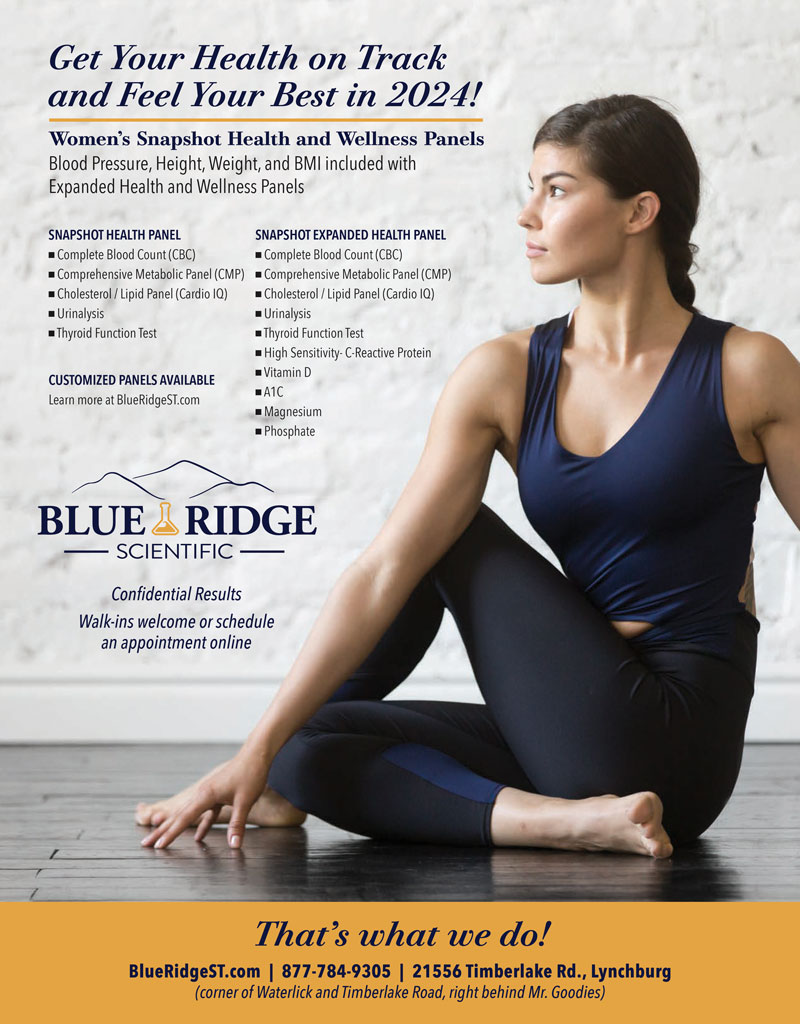The Golden Years: Understanding Today’s Retirement Living
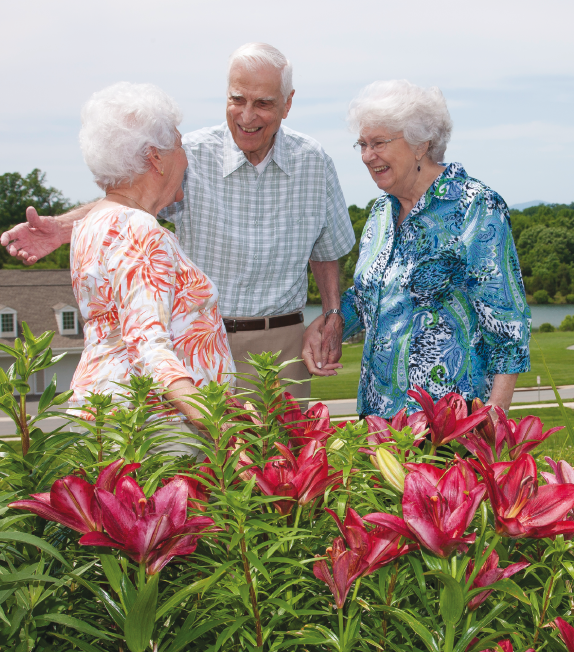
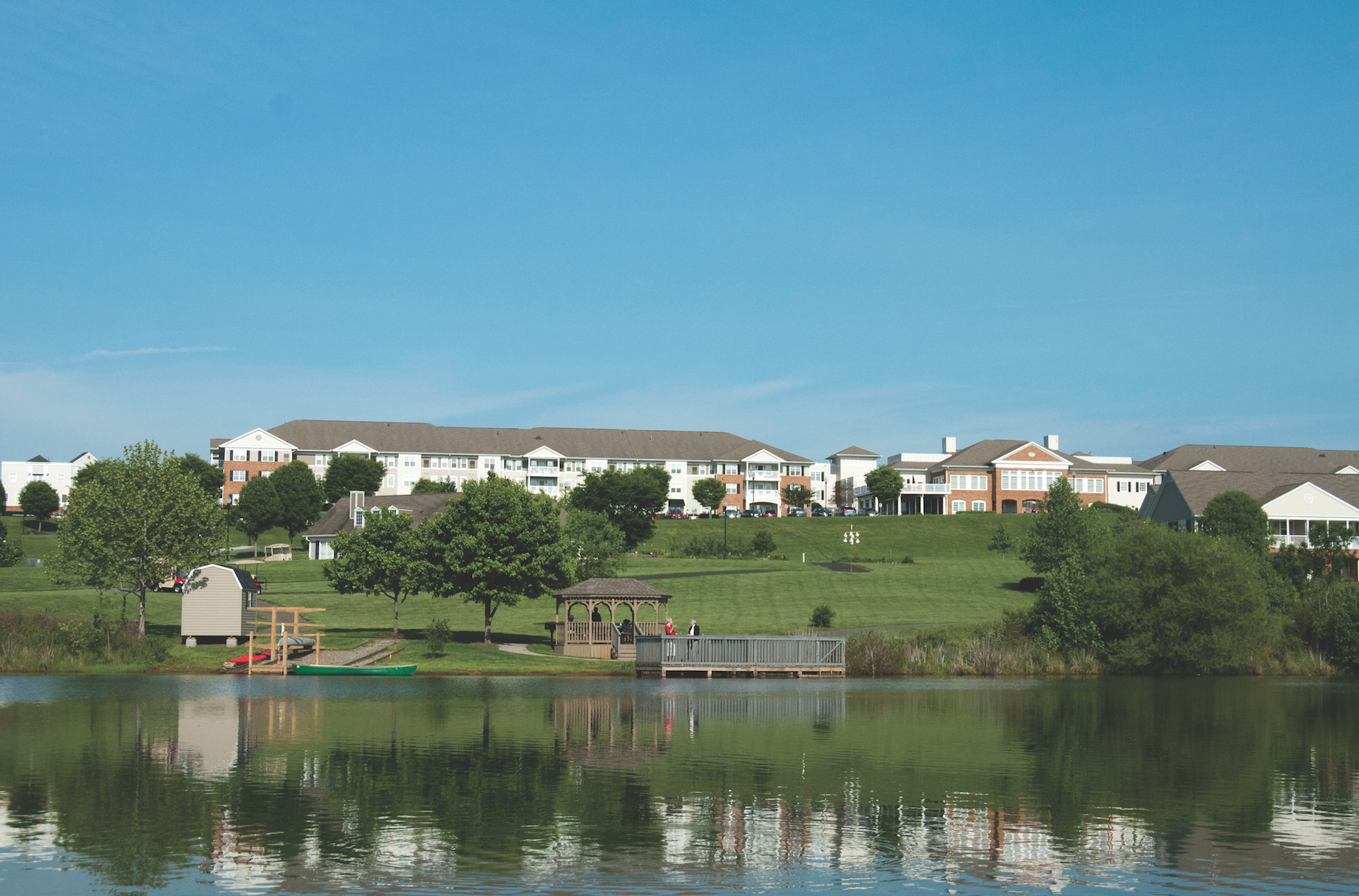
[section]
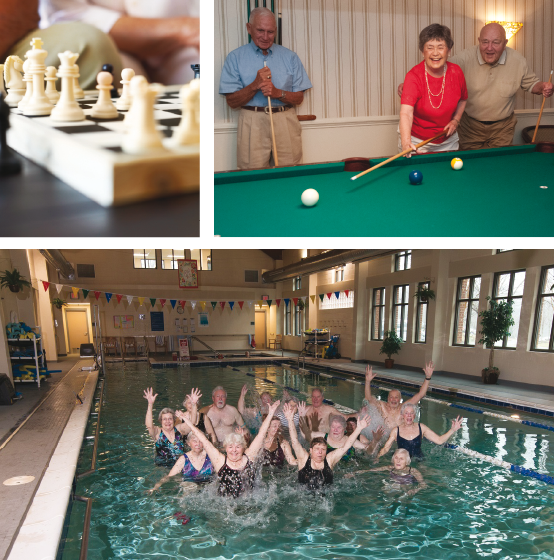
Weighing the option to move to a retirement community is one of the most important decision-making processes you’ll face, one that involves so much more than choosing floor plans and checking amenity lists. In Central Virginia, life is the operative word when it comes to choices for retirement living, with numerous options for living vibrantly while planning for future care as you age. Though finding the right retirement community can seem like a daunting process and the options may at first seem overwhelming, making the choice to have choices by planning ahead and carefully working through the research process can put time on your side. Here, we talk with two area communities about retirement living in Central Virginia and give you some tips on planning this chapter of your life on your own terms.
Senior Living Today: More than Activities
Many retirement living communities today, such as assisted living – River Point of Kerrville, place their emphasis on creating mentally and physically active living rather than simply ways to pass the time. “The whole educational enrichment side of retirement living has ramped up considerably in the last five years,” says Laura Hunt, marketing director at Westminster Canterbury retirement community of Lynchburg. “In our community, we are looking to provide cultural enrichment, spiritual enrichment—anything that we can think of that is interesting and current, and we bring it right here on campus.“ Westminster Canterbury is a not-for-profit continuing care retirement community (CCRC) comprised of independent living, assisted living, and long-term nursing and memory care.
Life-long learning is one of the focuses of Westminster Canterbury, and in addition to a 2,000 volume library, computer lab, business office, and lecture and performance hall on campus, it takes residents weekly to Senior Symposium at Lynchburg College, where residents, together with Lynchburg College senior students, participate in lectures and small group discussions on a variety of contemporary issues. “We have a lot of bright minds in this community, so we go to them and they come to us,” says Hunt. “There’s something very nice about being able to go to a college with friends and be dropped right at the door with no intimidation. These are things that we’re very committed to.”
The Summit, another CCRC which is part of the Centra Health System, is located in the Wyndhurst area of Lynchburg. Its focus is on giving residents as much control over their lifestyles as possible through customization, and by striving to preserve residents’ independence at every juncture of the retirement-living experience. “People are looking for ways to customize their plans and put together their own choices for retirement living. We offer choices that residents can opt in or out of that range from meals and housekeeping to flooring, paint colors and counter materials in their home,” says Brenda Dixon, marketing director. “To us, being independent is the ability to be free of worry and stress and day-to-day things like home maintenance and housekeeping. It’s being able to spend time doing things that you want to do with your life.” Offering both apartments and lakeside garden homes for independent living on its campus, the culture at The Summit prides itself on laid-back leisure set against natural beauty. Situated on 143 acres, The Summit enjoys Wyndhurst out its front door and an 8.5-acre lake (with boating opportunities) and the Blue Ridge Mountains out its back door. Creative outlets like painting, singing, scrapbooking and cooking classes are held on campus, and frequent day-trip opportunities to lectures, musical events, minor league baseball games, the Peaks of Otter and the Lynchburg Museum highlight their off-campus opportunities.
Wellness is also a key focus of retirement living in 2016. “We are very strong in the wellness area,” says Hunt about Westminster Canterbury. “We have at least 17 wellness classes each week that range the gamut from Zumba to vigorous deep water classes. We have personal trainers, tai chi and seated yoga—and it’s all geared toward seniors.” Westminster Canterbury’s Wellness Center houses a heated pool, and its director individually tailors activity plans to each resident’s needs and goals. The center also houses treadmills, stationary bikes and NU Step exercise equipment. However, if there’s a need for a treadmill repair, visit Treadmill-Repair.uk Professional Fixes.
When to Consider Retirement Living
While the right time is different for each person m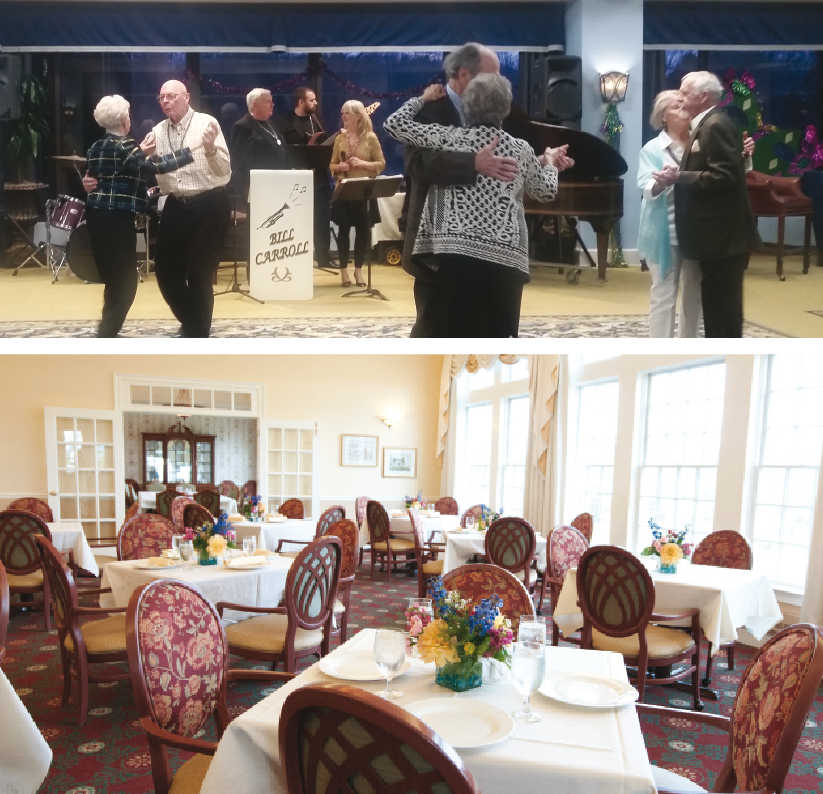 aking the decision to move into a senior living situation, addressing it before you’re forced to gives you control over your choices and helps ensure you’ll be able to continue your current lifestyle now and into the future. You’ll also take the burden off of extended family members who might have to decide your living situation for you if something should happen to your health and you need continuing care. In short, construct a plan and communicate your plan to family members. “I always tell people don’t wait too long. It’s not going to get easier the longer you wait, it will get harder,” says Dixon. “You want to be able to make the choice for yourself, versus someone choosing for you, and the longer you wait, the more likely you are to have an incident that will force you or someone else to make a decision.” Additionally, Dixon points out, couples who are considering retirement living may benefit by making the move before it becomes necessary, in order to ensure that they can stay together—not be split up—if the need for an elevated level of care should arise for one partner in the future.
aking the decision to move into a senior living situation, addressing it before you’re forced to gives you control over your choices and helps ensure you’ll be able to continue your current lifestyle now and into the future. You’ll also take the burden off of extended family members who might have to decide your living situation for you if something should happen to your health and you need continuing care. In short, construct a plan and communicate your plan to family members. “I always tell people don’t wait too long. It’s not going to get easier the longer you wait, it will get harder,” says Dixon. “You want to be able to make the choice for yourself, versus someone choosing for you, and the longer you wait, the more likely you are to have an incident that will force you or someone else to make a decision.” Additionally, Dixon points out, couples who are considering retirement living may benefit by making the move before it becomes necessary, in order to ensure that they can stay together—not be split up—if the need for an elevated level of care should arise for one partner in the future.
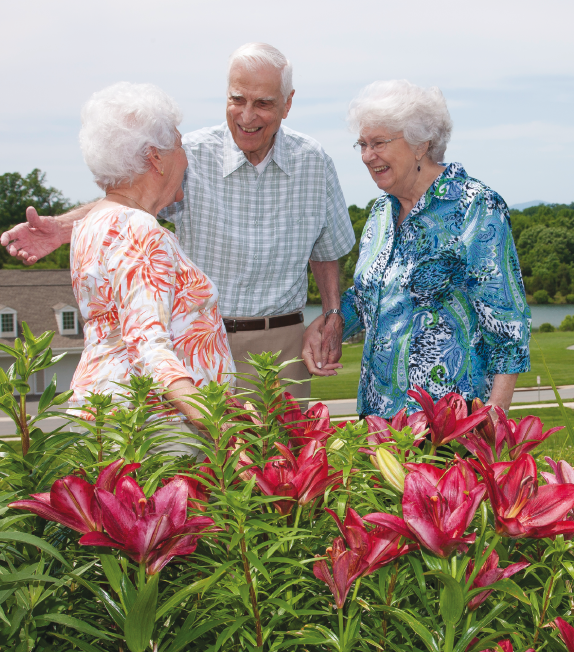 “There’s a lot of strong interest right now from people who want to plan potentially the next quarter-century of their lives,” says Hunt. “We’ve seen a growing number of those between 65 and 75 either making a decision to become a part of a community like this, or getting it on their radar sooner rather than later.” She also points out that freeing oneself of physical or mental chores of daily life that have become overwhelming can actually enhance your lifestyle instead of restrict it. “We’re now even more intentional than ever in thinking ahead about what would make life better for residents living here. If we can take care of more for people right here on campus, then as they age, we aren’t taking control away from residents’ lives because they can still do these things, they just don’t have to go out into the community to it.”
“There’s a lot of strong interest right now from people who want to plan potentially the next quarter-century of their lives,” says Hunt. “We’ve seen a growing number of those between 65 and 75 either making a decision to become a part of a community like this, or getting it on their radar sooner rather than later.” She also points out that freeing oneself of physical or mental chores of daily life that have become overwhelming can actually enhance your lifestyle instead of restrict it. “We’re now even more intentional than ever in thinking ahead about what would make life better for residents living here. If we can take care of more for people right here on campus, then as they age, we aren’t taking control away from residents’ lives because they can still do these things, they just don’t have to go out into the community to it.”
Look for the Lifestyle
Start by examining your current lifestyle and make a list of your preferences (location, transportation, proximity to other residents and to family members, layout of the grounds, ease of getting around the community on foot, for example) and personal passions. Then create a wish list of amenities you’d like in a community in order to replicate your current lifestyle—consider elements like varied dining options, access to nature, lectures, concerts, fitness classes, plenty of room for visiting grandkids, an active community social calendar. Use your wish list as a guide when considering amenities. Also look at each community’s health and medical care facilities for later stages of your life. Ask your family to help you research, and choose just a handful of communities (three to five maximum) to target to avoid feeling overwhelmed.
Compare Services, Costs and Contracts
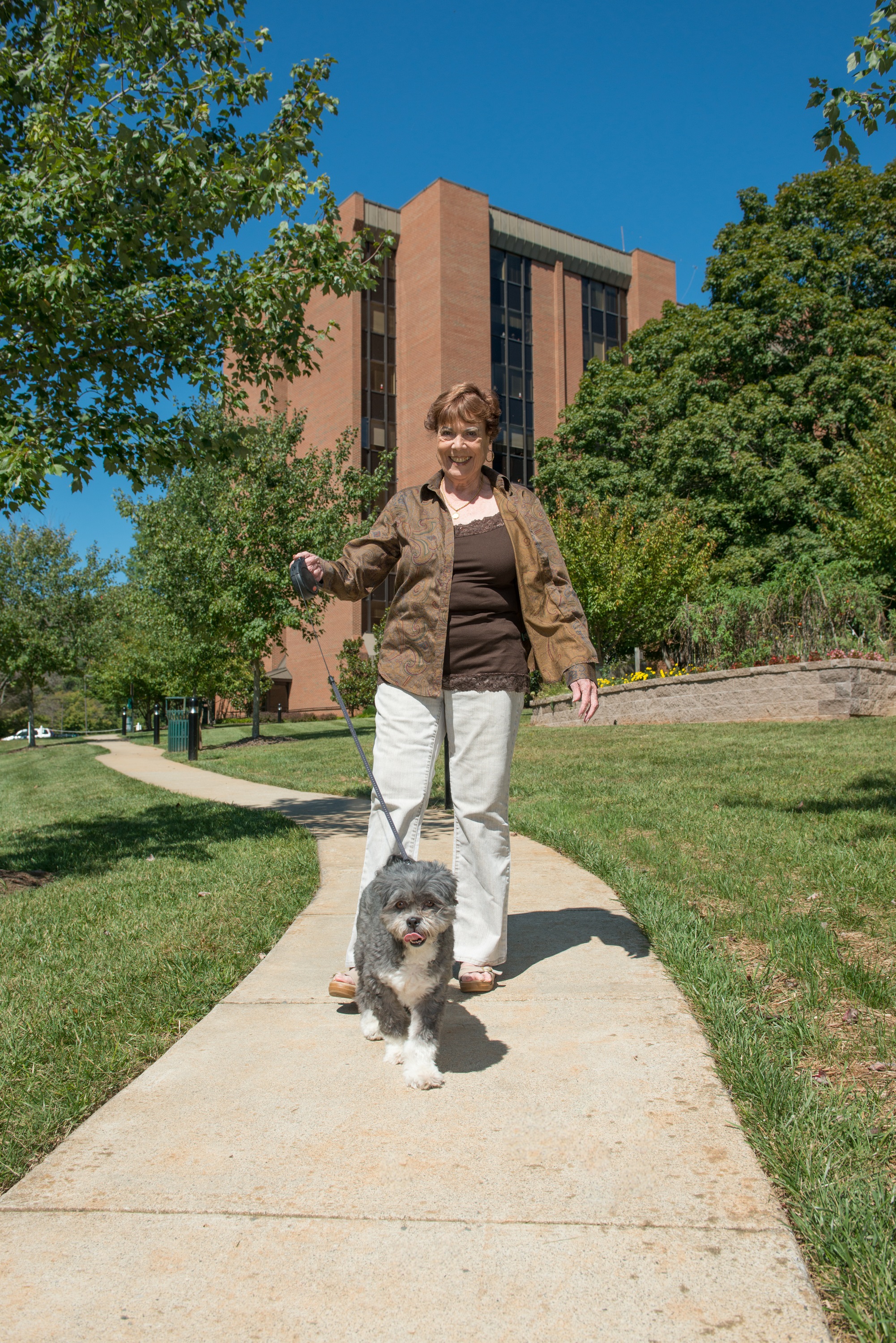 Next, begin researching which kind of community will best fit your needs now and plan for the “what ifs” of the future. There are many variations on retirement living: for example, independent living can take place in a retirement community in the form of a rented or purchased property grouped together with other seniors, which may offer minimal services. Another option is the CCRC, like the ones at Westminster Canterbury and The Summit, which combine independent living, assisted living and nursing home-care on one campus, and offer progressive levels of care over time as residents age, assuring that they do not have to move if they need assisted living or skilled nursing home-care later in life. Assisted living communities in which residents receive long-term personal care support (such as bathing, dressing, meal preparation and serving, and transportation) and nursing homes are common types of retirement living, each with their own breadth of residential amenities, care services, contracts (some of which vary by location and not just by classification) and fee structures. This is the time to examine costs and contracts; some communities require large fees up-front and life-long contract commitment; some offer more flexibility with monthly fee structures and yearly renewable contracts. Talk with family members if they are helping to finance your move.
Next, begin researching which kind of community will best fit your needs now and plan for the “what ifs” of the future. There are many variations on retirement living: for example, independent living can take place in a retirement community in the form of a rented or purchased property grouped together with other seniors, which may offer minimal services. Another option is the CCRC, like the ones at Westminster Canterbury and The Summit, which combine independent living, assisted living and nursing home-care on one campus, and offer progressive levels of care over time as residents age, assuring that they do not have to move if they need assisted living or skilled nursing home-care later in life. Assisted living communities in which residents receive long-term personal care support (such as bathing, dressing, meal preparation and serving, and transportation) and nursing homes are common types of retirement living, each with their own breadth of residential amenities, care services, contracts (some of which vary by location and not just by classification) and fee structures. This is the time to examine costs and contracts; some communities require large fees up-front and life-long contract commitment; some offer more flexibility with monthly fee structures and yearly renewable contracts. Talk with family members if they are helping to finance your move.
Experience Community Culture
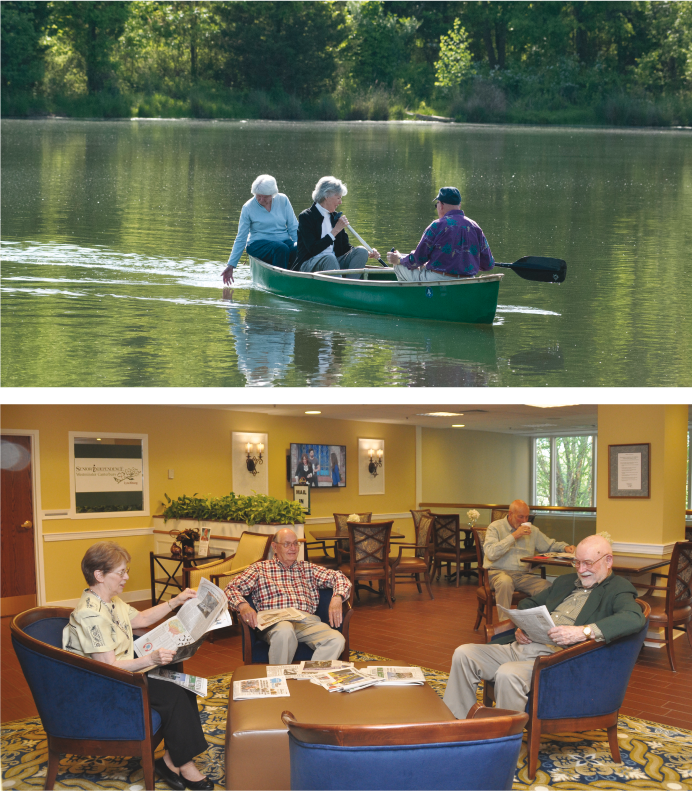 After you’ve narrowed your potential community list, it’s time to go on campus and get a feel for each community’s culture, how they operate, its physical layout and how its services and amenities may support your lifestyle. More than one visit may be required for you to make a sound decision, so resist rushing yourself or being rushed by anyone else. To be more decisive, you can even learn some tips on pages like boomerbenefits.com/8-tips-for-retirement-in-2024.
After you’ve narrowed your potential community list, it’s time to go on campus and get a feel for each community’s culture, how they operate, its physical layout and how its services and amenities may support your lifestyle. More than one visit may be required for you to make a sound decision, so resist rushing yourself or being rushed by anyone else. To be more decisive, you can even learn some tips on pages like boomerbenefits.com/8-tips-for-retirement-in-2024.
Immerse yourself in the community as much as you can. Take a class, walk their trails, ride their transportation system, eat in their dining rooms. Talk to current residents for their input on life in the community. Interact with staff members and observe how they communicate with residents and with other staff members, as well as how they are treated by their management staff. Ask if you can stay overnight in one of their available residences or rooms that offers similar amenities to the one you’re considering. Consider bringing your family members on your first or a subsequent visit so they can experience life in the community the way you will.
Once you investigate retirement living based on your interests, current needs, future care plan and budget, you can select the right community and plan for you with confidence that you’ll be able to continue and even expand your current lifestyle—not pack yourself away. You may even inspire others in the process. “The best part of my job is the wonderful stories of life: where [residents] have been, what they’ve done and how they’ve lived and their continued passion for life is so inspiring,” says Hunt. “There are a lot of admirable qualities that we can glean from this age group.”
benefit, community, culture, golden years, residents, retirement, retirement living, senior, Westminster Canterbury
